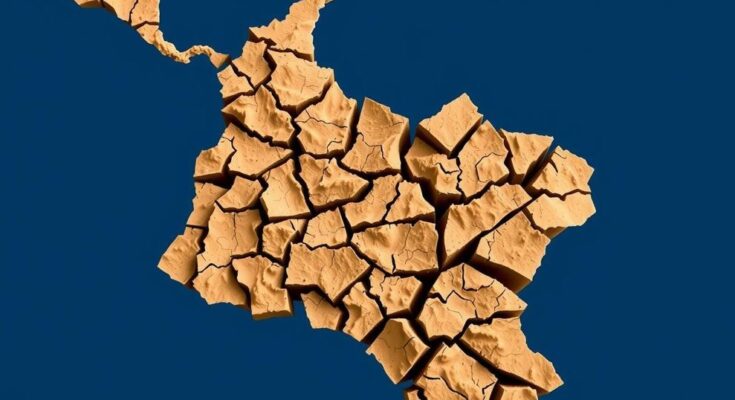Ecuador is enduring its worst drought in 60 years, coupled with devastating wildfires that threaten its biodiversity. While climate change is a driving force behind these issues, various stakeholders suggest that some wildfires may be intentionally set, complicating the crisis further. Citizens express frustration over governmental mismanagement and the effects of electricity rationing caused by depleted water resources vital for energy production. Experts emphasize the need for a systemic understanding of these interlinked crises and accountability from industrialized nations.
Ecuador, a small yet megadiverse country in Latin America, is currently grappling with its most severe drought in six decades, compounded by widespread wildfires that threaten its unique ecosystems. The nation boasts a rich variety of climates due to its geographical diversity, yet the recent climatic abnormalities have exacerbated environmental challenges. Particularly, the Andean region, where the capital Quito is situated, has experienced increased dry conditions paired with high ultraviolet radiation, leading to intensified wildfire risks. Climate change has been a significant factor in this crisis, a subject emphasized during the recent presidential campaigns. The debate around preventing droughts and ensuring energy security has been crucial for national interests, as 70% of Ecuador’s energy is generated through hydropower, which relies heavily on consistent rainfall. Since 2023, Ecuador has noticed a troubling decline in precipitation, disrupting agricultural outputs and leading to forced electricity rationing to manage the depleted energy supply. Quito’s mayor, Pabel Muñoz, has characterized many of the fires as being intentional, referencing a potential link to criminality. Local voices, such as Alejandra Baca and Felipe Rivadeneira, express frustration at the insufficient response from municipal authorities and the apparent human actions contributing to this ecological disaster. There is a growing consensus among students and citizens that the government’s management of this environmental emergency has been inadequate. In the face of these challenges, experts like Janice Harvey, an environment and society professor, are urging communities to recognize the interlinked nature of the climatic and human-made disasters affecting Ecuador. She observes that residents often view these crises as separate issues rather than part of a larger systemic problem driven by climate change. Harvey calls for a reevaluation of how both local and international communities address these underlying causes, emphasizing the long-standing impact of industrialized nations on global climate policy.
Ecuador, recognized for its remarkable biodiversity, is facing critical environmental challenges due to the worst drought in over sixty years. The complex microclimates of the country create varied weather patterns, but recent climatic shifts have resulted in severe drought conditions across the nation, culminating in increased wildfires that pose threats to its ecological integrity. Climate change stands as a pivotal factor, exacerbating existing vulnerabilities and impacting agricultural and energy sectors that rely on consistent rainfall. The socio-political dimensions of this crisis have further stirred public discontent regarding government responses to the escalating emergencies.
In summary, Ecuador is confronting an unprecedented drought and a surge in wildfires, both of which are intricately linked to climate change and potential human activity. The government’s inadequate emergency response and the lack of comprehensive prevention strategies have fueled public dissatisfaction. There is a pressing need for a holistic understanding of these interconnected crises, urging both local and international entities to address not only the symptoms but also the root causes of these environmental disasters to mitigate their impacts on vulnerable communities.
Original Source: theaquinian.net




